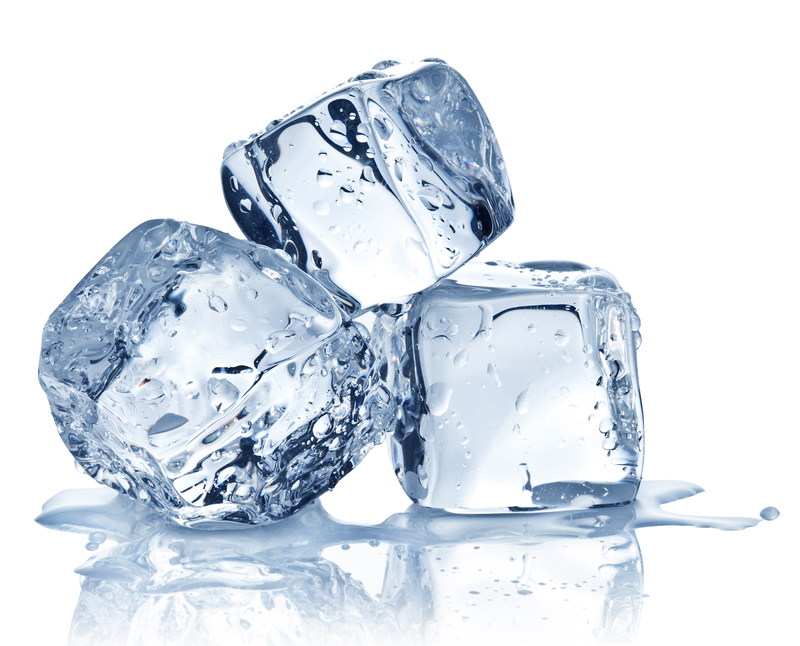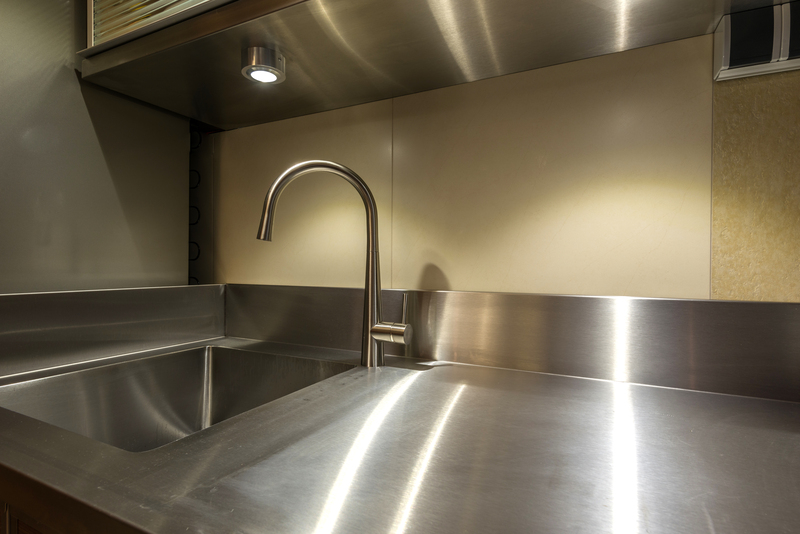The Ultimate Jewellery Cleaning Method Guide
Posted on 29/09/2025
The Ultimate Jewellery Cleaning Method Guide
Introduction: Why Cleaning Your Jewellery is Essential
Jewellery is more than just adornment -- it tells stories, marks milestones, and captures memories. Over time, however, your favorite jewellery pieces can lose their luster due to exposure to dust, oils, and environmental factors. Learning the ultimate jewellery cleaning methods can restore their sparkle, preserve their beauty, and even extend their lifespan. In this comprehensive guide, we'll explore expert-approved jewellery cleaning tips, step-by-step cleaning processes by material, and key care advice to keep your treasures shining for generations.

What Causes Jewellery to Look Dull?
- Tarnish: Common with silver, caused by reacting with sulfur in the air
- Oils & Lotions: Everyday products that leave residue on metals and gemstones
- Dust & Dirt: Accumulates in decorative crevices and settings
- Chemical Exposure: Household cleaners, perfume, and cosmetics can damage both metal and stones
Understanding why your jewellery loses its shine is the first step in reclaiming its radiant glow. With the right knowledge, it's easy to keep your precious pieces looking brand new.
Jewellery Cleaning Method Guide: Materials Matter
Not all jewellery is created equal. Cleaning methods must be tailored to the specific type of metal and gemstone to prevent damage. Explore the ultimate method for cleaning jewellery based on its material.
Gold Jewellery Cleaning
Gold is a relatively soft metal, so gentle cleaning is key. Follow these gold jewellery cleaning tips for best results.
- Soak: Mix a few drops of mild dish soap in warm (not hot) water.
- Clean Gently: Soak your gold jewellery for about 15 minutes.
- Brush: Use a soft-bristled toothbrush to lightly scrub away dirt, especially in crevices.
- Rinse: Rinse with lukewarm water and dry with a soft, lint-free cloth.
Note: Avoid using abrasive materials or ammonia-based cleaners on gold, as they can scratch or damage the surface.
Silver Jewellery Cleaning
Silver jewellery is notorious for tarnishing, but can be cleaned easily at home with the right method.
- Baking Soda Paste: Make a paste using 2 parts baking soda to 1 part water.
- Rub: Apply the paste with your fingers or a soft cloth.
- Scrub Gently: If needed, use a soft toothbrush for intricate areas.
- Rinse & Polish: Rinse with water and buff dry with a microfiber cloth.
*Tip: For heavily tarnished silver, line a bowl with aluminium foil, add hot water and baking soda, and let your jewellery soak. This chemical reaction can quickly lift tarnish!*
Platinum Jewellery Cleaning
When it comes to cleaning platinum jewellery, many methods overlap with those used for gold, but with a little more resilience to frequent cleaning.
- Soak in mild soapy water for 15 minutes.
- Gently scrub with a soft brush.
- Rinse well and pat dry.
Platinum's durability makes it safe to clean frequently, but always avoid harsh chemicals and abrasive tools.
Diamond & Hard Gemstone Jewellery Cleaning
Diamonds and other hard gemstones like sapphires and rubies are relatively tough, but settings can trap grease and grime.
- Mix warm water and a little mild dish soap in a bowl.
- Let the jewellery soak for about 20 minutes.
- Use a soft toothbrush to clean around the stone and the setting.
- Rinse under running water and dry with a lint-free cloth.
*Warning: Never use bleach or harsh chemicals on gemstone jewellery as they may cause discoloration or damage.*
Cleaning Pearls and Soft Gemstone Jewellery
Pearls, opals, turquoise, and other soft or organic gemstones require special attention as they are easily scratched and damaged.
- Wipe with a *damp, soft cloth* after each wear to remove body oils and residue.
- Never soak pearls or soft gemstones in water, as it can weaken stringing or damage the stones.
- If deep cleaning is needed, use a soft cloth barely moistened with water and a tiny drop of mild soap, then wipe dry immediately.
Never use ultrasonic cleaners or commercial jewellery dips for pearls or any delicate stones.
Costume & Fashion Jewellery Cleaning
Costume jewellery is often made from non-precious metals and glass, synthetic stones, or plastics, and can tarnish or corrode easily.
- Use a *soft, dry cloth* to gently wipe surface dust and oils.
- If needed, a slightly damp cloth (with only water) can be used, but avoid getting water into settings.
- Never soak or submerge, as glue or adhesive stones may loosen.
- Dry immediately after cleaning.
Ultrasonic Jewellery Cleaning: Is It Safe?
Ultrasonic cleaners use high-frequency sound waves and a cleaning solution to gently remove dirt. They are effective but not safe for all types of jewellery.
- Safe for: Plain gold, platinum, and hard gemstones like diamonds, sapphires, and rubies.
- Unsafe for: Porous, soft, or treated stones (amber, opal, pearls, emeralds), costume jewellery, and anything with loose settings.
*Always check with a professional or your jeweller before using an ultrasonic cleaner, especially for antique or delicate jewellery pieces.*
Jewellery Cleaning Hacks & Homemade Solutions
Discovering the best jewellery cleaning hacks can help you revive sparkle at home, safely and affordably. Here are some tried-and-tested DIY jewellery cleaning solutions:
- Vinegar & Baking Soda: For tarnished sterling silver, soak in a mixture of 1/2 cup white vinegar and 2 tablespoons baking soda for two to three hours. Rinse and dry thoroughly.
- Alka-Seltzer Bath: Drop your dull jewellery in a glass of fizzing Alka-Seltzer for a few minutes to help loosen residue. (Good for gold or diamond jewellery, but avoid with pearls or other delicate stones.)
- Toothpaste Polish: Non-gel toothpaste can gently polish silver and gold; use a small amount with a soft cloth or toothbrush, rinse, and buff. *Not for pearls or soft stones.*
- Window Cleaner: A dab of window cleaner can bring the sparkle back to diamond rings. Spray on a soft brush and gently clean -- never use on pearls or porous gemstones.
Jewellery Cleaning Mistakes to Avoid
- Never use bleach or strong chemicals -- they can permanently damage metals and stones.
- Don't use hard or abrasive brushes, which may scratch precious pieces.
- **Avoid ultrasonic cleaners** with glued settings or soft stones.
- Don't soak stringed jewellery or soft/porous gemstones.
When to Seek Professional Jewellery Cleaning
For valuable, antique, or sentimental pieces, or for intricate jewellery with lots of pave or micro-settings, always consult a professional jeweller for cleaning. They can safely clean, polish, check for loose stones, and give your pieces a thorough inspection.
How to Care for Jewellery Between Cleanings
The ultimate jewellery cleaning regimen goes hand-in-hand with smart care habits. Follow these pro tips to minimize buildup and keep your collection gleaming longer.
- Remove jewellery before: Swimming, showering, doing housework, or applying lotion or perfume.
- Store properly: Keep pieces in soft cloth pouches, lined boxes, or divided trays to prevent scratches and tarnishing.
- Wipe down regularly: Use a lint-free cloth to remove oils after wearing.
- Avoid direct sunlight & heat: Prolonged sun exposure or high heat can fade gemstones and degrade metals.
Frequency of Cleaning
- Everyday wear: Wipe clean after use, deep-clean monthly.
- Occasional wear: Clean before storing and after heavy use.
- Family heirlooms: Let professionals handle antique and very valuable items.

Frequently Asked Questions About Jewellery Cleaning
How often should I clean my jewellery?
For pieces you wear daily -- like engagement rings and favourite necklaces -- a gentle cleaning every couple of weeks helps prevent buildup of grime. More elaborate or less-used items can be gently wiped and cleaned every few months.
Can jewellery cleaning methods damage my pieces?
Yes, using the wrong jewellery cleaning solution or tool can scratch metals, loosen settings, or cause irreversible damage to certain gemstones. Always follow recommended methods for your jewellery type.
What is the safest method for cleaning all types of jewellery?
A soft, damp cloth is universally safe for all jewellery. For precious metals and hard gems, mild soap and warm water are usually sufficient. For pearls or fragile items, stick to dry, gentle wiping and professional cleaning.
Are commercial jewellery cleaners safe?
Many are safe for gold, silver, or diamonds but can damage softer stones or costume jewellery. Always read labels and test on a small area first.
Conclusion: Keep Your Jewellery Sparkling for a Lifetime
Your jewellery deserves regular love and care so it can continue to shine through every celebration and memory. By following this ultimate jewellery cleaning method guide, you'll ensure your favourite pieces remain radiant and beautiful for years to come. Remember, using the right cleaning method, taking preventive care, and seeking professional help when needed, are keys to preserving the timeless charm of your precious jewels.
Make jewellery cleaning a part of your regular routine, and you'll always have sparkling treasures at hand -- ready to add brilliance to any moment.
Did you find this guide on jewellery cleaning methods helpful? Share your favourite cleaning hack or ask your questions in the comments below!
Latest Posts
The Ultimate Jewellery Cleaning Method Guide
Say Farewell to Damp Odor with These Expert Strategies
Navigate the world of household allergens and dust with confidence
Renew and Refresh: Washing Sofa Covers Without Destruction
Let our Deep Clean Checklist guide your spring cleaning to excellence



